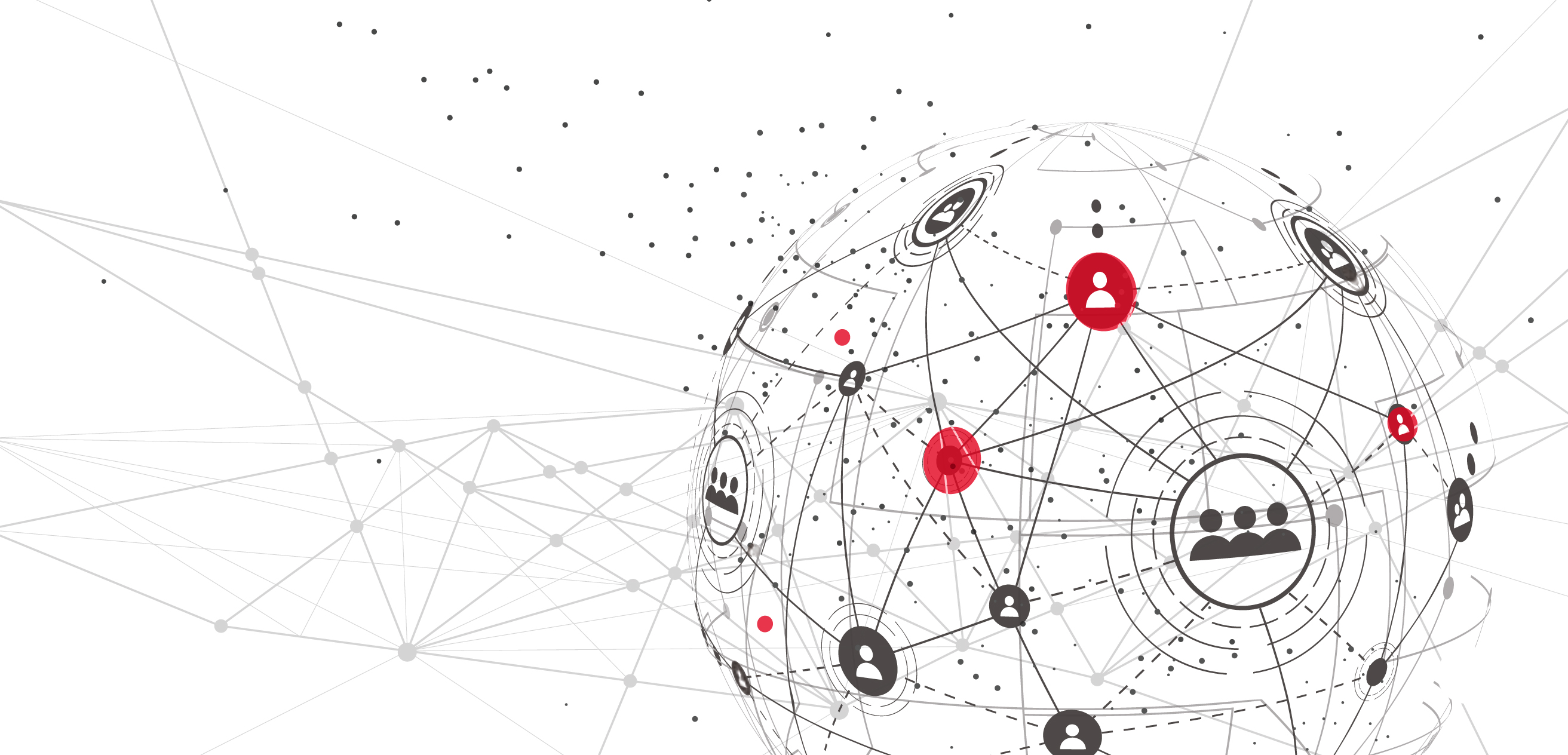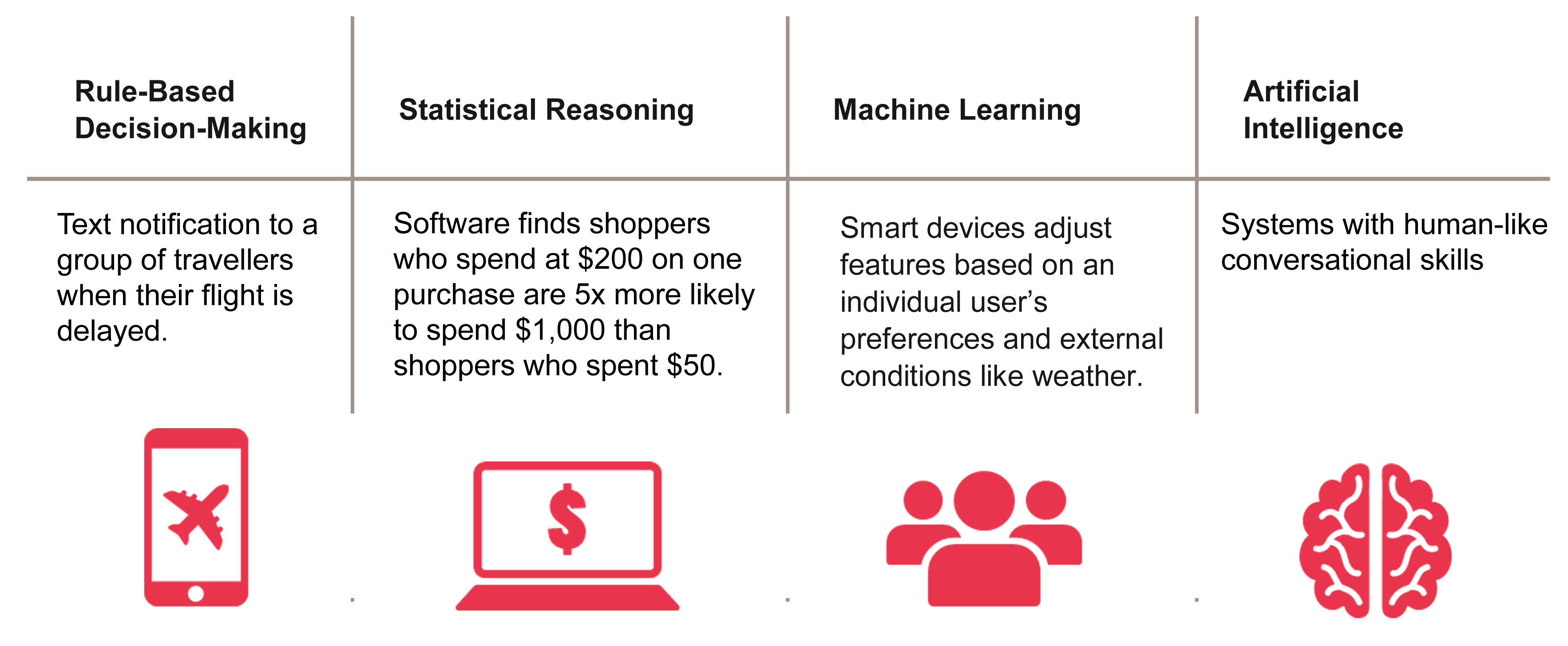 In their insightful report Break Through the Hype: Uncover the Reality of AI, Oracle and Bronto point out that a growing number of commerce marketing software providers claim their systems use AI, explaining in a nutshell what this means:
In their insightful report Break Through the Hype: Uncover the Reality of AI, Oracle and Bronto point out that a growing number of commerce marketing software providers claim their systems use AI, explaining in a nutshell what this means:
“AI solutions must consume arbitrary data, autonomously select the best method among several options, make smart decisions and then take a corresponding action. Essentially, an AI-driven system can think and act for itself.”
How all this helps marketers to promote products and services more effectively to consumers they depict nicely, too.
“The pathway to AI is a broad and linear continuum that begins with simple, rule-based decision-making. Software development must progress through multiple stages of programming, data science and complex system analysis to qualify as authentic AI”, experts explain, generating an easily interpreted graphic image of “decision-making in software”.


1. Rule-based decision-making uses “yes or no” data, also known as Boolean data, to allow different actions or change control flow. Almost all software programming uses this system of logic, which is primarily associated with conditional statements denoted as true or false. “If this, then that” logic falls into this early category.
2. Statistical reasoning applies simple regression to numerical data to predict scores on one variable from the scores on a second variable. This is where data science enters the picture, making it possible to detect outliers, predict value and estimate whether existing trends will continue.
3. Machine learning (ML) is technology that teaches software to learn on its own, without being explicitly programmed to do so. A system that uses ML can change when it is exposed to new data. Simple ML requires supervision, or human expertise, to review, validate and adjust program actions. Advanced machine learning can detect patterns and adjust actions accordingly, without the assistance of a software developer.
An example of advanced ML is a neural network that makes decisions or predictions as the human brain does, such as recognize an image or classify data. The system can learn without human intervention.
4. Artificial intelligence (AI) means a device or system can sense its environment and take actions without human intervention to maximize its chance of success with a particular goal. Autonomous vehicles, game-playing computers and systems with human-like conversational skills are examples of simple AI.
Of the four decision-making systems, machine learning (ML) offers the greatest revenue generation potential for commerce marketers, the report reveals. Software developers are applying it to build tools that can analyze millions of data points about shoppers’ preferences and actions to create a more personal experience. In fact, as consumers interact with personalized content, the software captures even more data about their behaviors to make product recommendations for a single shopper grow more relevant over time. But personalization is just one example of the tremendous potential machine learning(ML) offers commerce marketers. It enables other innovations like cognitive content, which analyzes words, phrases and emotions to generate campaign-specific language with proven appeal.
Augmented reality (AR) is another promising technology for retail that machine learning can enhance. Currently, for instance, an estimated 100 million consumers is expected to shop via augmented reality by 2020. Furthermore, virtual reality (VR) is another technology enhanced by machine learning. Oracle Retail 2025 showed 64% of consumers liked the option of using virtual reality to navigate a personalized in-store experience and have a hand-picked wardrobe to try on in-store.
“We have plenty of data about shoppers’ behaviors and actions and can identify what they’re interested in - based on their browse behavior, cart actions, email opens and clicks. We also know what, when and how often they buy, since we use machine learning to classify data or extract features from data using iterative algorithms with tunable parameters”, Oracle and Bronto state in their report. Emphasizing that their approach to applying machine learning, artificial intelligence and other techniques is rooted in their commitment to transparency, security and an excellent experience for both the commerce marketer and the consumer.
By MediaBUZZ


